How Many Calories Does Weightlifting Burn: 7 Factors You Should Consider
Author:
Reviewed by:
(21 years of Oly Lifting experience)
Unlock your full potential by engaging with our experts and community! Have questions about your fitness journey or looking for expert advice on weightlifting techniques? Don’t hesitate — leave a comment below and Sergii Putsov will provide a personalized answer and insights to help you reach your goals.
Torokhtiy is reader-supported. Some links are affiliate links, and we may earn a commission at no extra cost to you. See our disclosure page for details.
When someone says the words “weightlifting”, what do you see? I bet I can guess and it’s not how many calories does weightlifting burn.
You see a big, buff guy with a barbell in his hands, sweating and getting even more buff. Did I guess correctly? Well, if this is the picture you associate with weightlifting, then I think this article will completely change the way you think of it.
Yes, weightlifting builds muscle. Yes, weightlifting can get you ripped and buff. But it really goes so much further beyond just muscles. I’m not saying that stereotypical guy isn’t there for a reason – people tie him to weightlifting because a lot of times, that’s how weightlifters look. But have you ever thought about how many calories does a weightlifting session burn? I know I have. And I have a lot of people and collegues asking me that question. Or even questions such as how many calories does an hour of weightlifting burn?
If you haven’t (and if you’ve done zero research on it), then let’s dive into calorie burning and see how weightlifting can help you with it!
Let’s burn! (calories)
How many calories does weightlifting burn? – Weightlifting can burn approximately 200-400 calories per hour, depending on factors such as intensity, duration, and individual body composition.
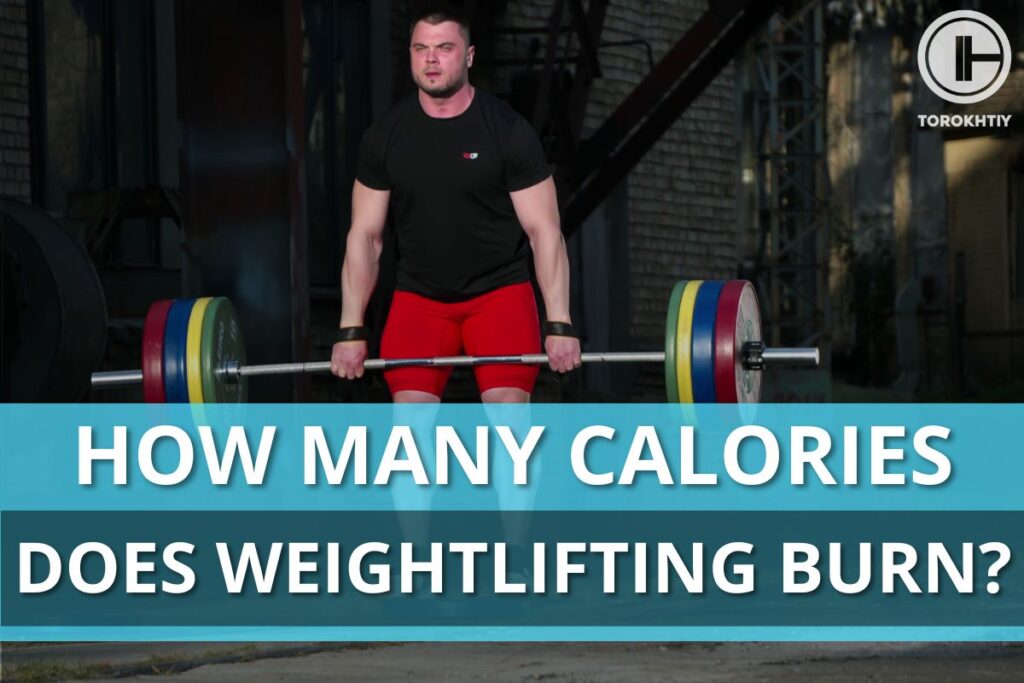
Does Weightlifting Burn Calories?
In short – yes! Weightlifting definitely burns calories. But I don’t just want you to take my word for it; let me show you just how effective weightlifting is and what it can do for you.
Essentially, weightlifting is a form of exercise that can not only help in burning calories, but actually has a range of benefits. I’ll be honest with you – it won’t torch as many calories as running, but weightlifting is not primarily a cardio exercise so it wouldn’t be fair to expect that anyway.
Weightlifting is a resistance workout; it uses weights such as dumbbells, barbells or weight machines. If you’ve ever tried weightlifting, you know how well you feel it in your muscles – it really puts them to work. Now, that pain you feel when weightlifting is actually making your muscles adapt to your workout. How do they adapt, you ask? It’s very simple and you’ll like my answer: your muscles adapt by getting stronger and more toned.
I know, I know… where’s the calorie burning in all of this? Well, muscle building doesn’t just come out of thin air! It’s a metabolically active process which helps in calorie burning.
But I haven’t gotten to the best part – you burn calories while resting, too! Have you heard of EPOC? That’s short for excess post-exercise oxygen consumption and it’s actually a phenomenon associated with (among others) weightlifting. Do you know how exhausted you feel after your lifting session? That’s because your workout has cost you a lot of energy. Now, your body needs to restore your energy level and repair your muscle tissue, which, you guessed it – burns calories! Neat, huh?
But calorie burning aside, weightlifting also has many other benefits.
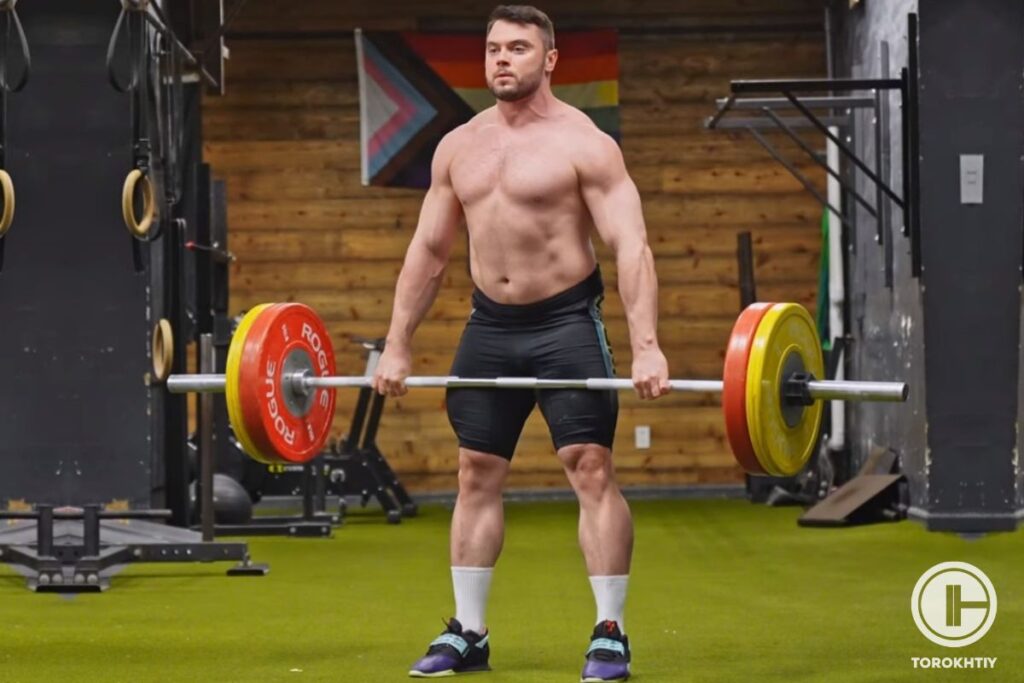
1. Muscle Development
It’s no secret, but I’ll mention it anyway – weightlifting helps you build muscle strength and endurance and stimulates muscle growth.
2. Improved Body Composition
If you lift weights regularly, it will help you reduce body fat percentage and increase muscle mass. To make it simple; you’ll get that toned, defined body that you just can’t wait to show off on Instagram!
3. Increased Bone Density
You’d never think to tie weightlifting to this, but it’s true! Weightlifting is a weight-bearing exercise, and those promote bone health and help prevent osteoporosis.
4. Functional Strength
This is a great one, because it translates into your daily life. Weightlifting improves overall strength, which makes daily tasks easier, and it also reduces the risk of age-related muscle loss.
Follow us!
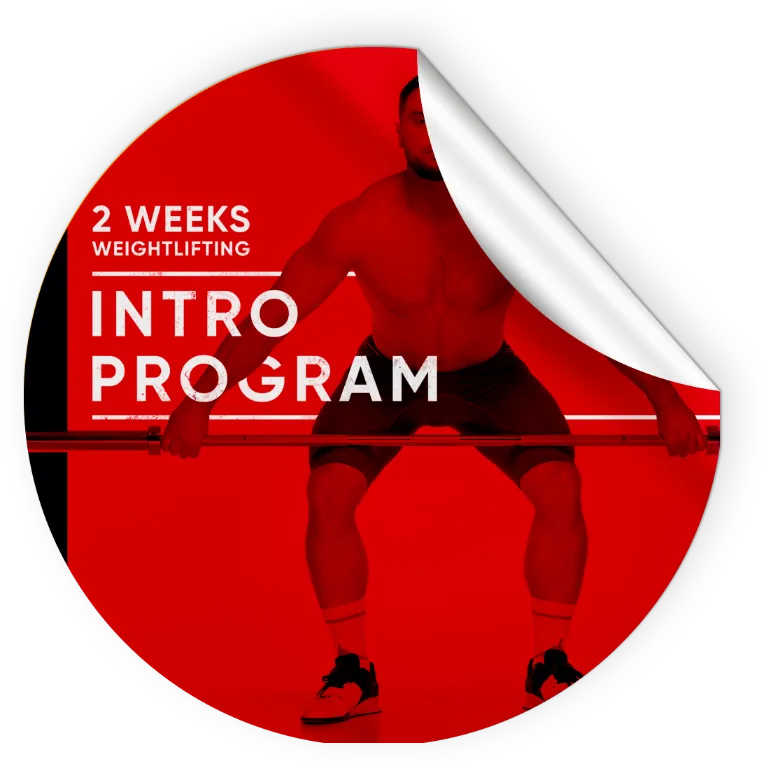
Free!
Get a 2-week Weightlifting Program as a bonus for the subscription to kickstart your training plan!

Free!
How Many Calories Does Weightlifting Burn?
Admit it – this is what you’re interested in the most! I don’t blame you, because we all want the numbers and percentages when it comes to calorie loss.
If you’re lifting weights, you put your muscles through quite a bit of work and you also put yourself through quite a bit of discomfort (even pain!) so it’s normal you want to make all that work have an effect.
The good news, since I can show you approximately how many calories you’ll burn. The bad news – this information, while correct, will still depend on other factors, such as workout intensity, body weight, etc.
| Amount of Time | 10 Minutes | 30 Minutes | 45 Minutes | 1 Hour |
| Calories Burnt | 60-100 | 180-300 | 270-450 | 360-600 |
Like I said, the number of calories burned in weight training will depend on a few factors, but generally, you can count on spending this many calories in this amount of time. Of course, heavier weights will require more energy and will also burn more calories. Rest periods and your personal fitness level are also a factor when it comes to determining how many calories you burn during a session.
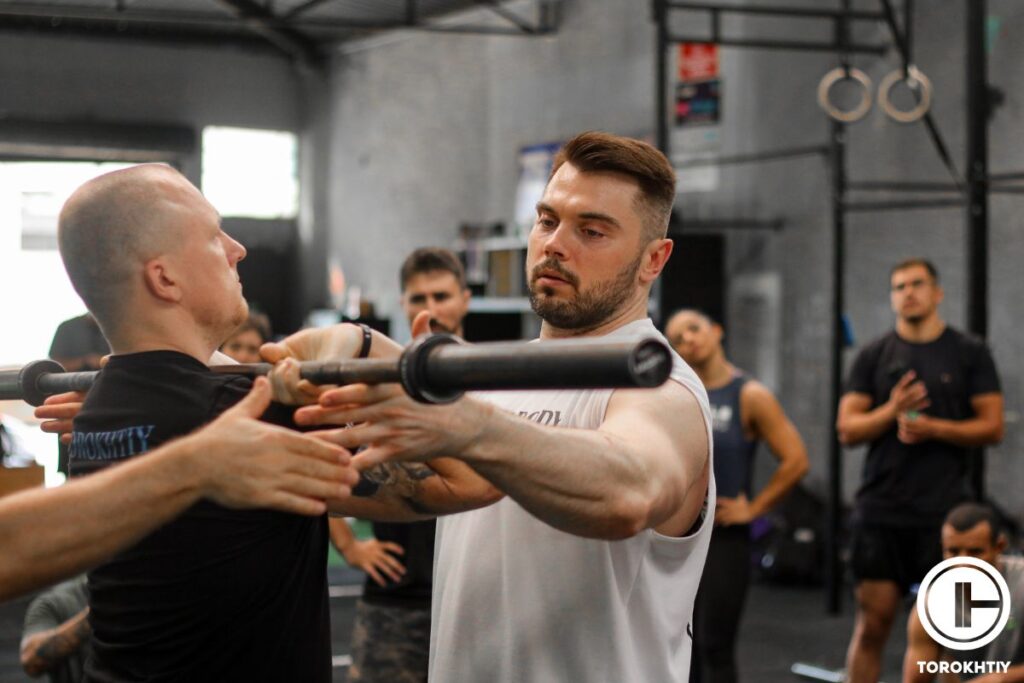
How Many Calories Do Other Sports Activities Burn Compared to Weightlifting?
So now that we have a baseline to work with, we can compare just how many calories other types of sports/activities burn when similar intensity levels are kept in mind.
Let’s crunch the numbers and make a tabular chart for easier readability:
| Activity/Sport | Calories Burned (in 1 hour by a 155-pound male) |
| Light Stretching | 224 |
| Walking (3.5mph) | 298 |
| General Aerobics | 372 |
| Moderate Weightlifting | 372 |
| Hiking | 446 |
| Moderate Swimming | 446 |
| Moderate Biking | 446 |
| Jumping Rope | 596 |
| Running (6mph) | 596 |
The above chart took into account a 155-pound male doing all the above exercises and activities at a moderate-vigorous level. And the given numbers, while still something that can be used as a reference point, are still only approximations.
It would be very hard to precisely calculate exactly how much a certain activity would burn calories in a certain amount of time. Because you’d have to adjust for so many factors such as: intensity level, type of exercise, incline and terrain, while running, terrain type while hiking, outside temperature, whether you’re male or female, metabolism, body composition, personal fitness level, how much muscle mass you have, etc. There are a lot of things you’d have to consider in order to get some precise calculations.

From the above, we can see that weightlifting isn’t really the most effective way to burn calories. If you want to burn calories, opting for some moderate running or jumping rope would be the best options, and stretching or walking (while still effective to some extent) would have the lowest impact. It comes as no surprise that different types of activities will burn calories differently.
If you would like to get a basic idea of how many calories you’d burn with certain activities, you can check the next part of the article, where you’ll find a useful formula to use for calculations.
Calorie Burning Calculator for Weightlifting and Bodyweight Training
Don’t worry, I’m not just going to say that the number of calories burned in strength training depends on a lot of factors and then leave you with a table containing general information. Of course, I have a formula for you, so you can adjust it and see what weightlifting can do for you specifically in terms of calorie burning.
A Calories burned in weight lifting formula that I like to use (and that is frequently used in general) is the MET (Metabolic Equivalent of Task) method. MET is a unit that represents the amount of energy you use up during a physical activity (a workout, in our case here). The formula is:
Calories Burned = MET value x body weight (in kilograms) x duration (in hours)
Still confusing? No biggie, I’ll explain some more.
Let’s say you weigh 70 kg (154 lbs.) and you start a weightlifting session (or a bodyweight training session) that has a MET value of 6 (6 is considered moderate intensity) and you’ll work out for 1 hour. Here’s how many calories you will burn:
Calories Burned= 6 METs x 70 kg x 1 hour= 412 calories
This is a pretty accurate formula if you want to see how many calories you’ll burn (and if you want to know exactly how that pain is going to pay off!). Of course, you could always use a heart rate monitor or even a fitness tracker that has the capability to track the calories for you.
7 Training Factors That Affect How Many Calories You Burn by Lifting Weights
I’m sure all of the different factors that influence your strength training calorie burn sound a bit abstract and you probably don’t know exactly what I mean. I really want you to get the most accurate estimate of how many calories weightlifting can burn so I’ll get into the factors right now and explain them.
1. Intensity
A no-brainer, I know. The higher the intensity, the more calories you’ll burn. The way I like to increase the intensity of my workouts is with explosive movements, because those need a lot of energy. Also, you can adjust the weight, reps sets and the tempo of your workout to customize it and make sure you’re burning as many calories as you can.
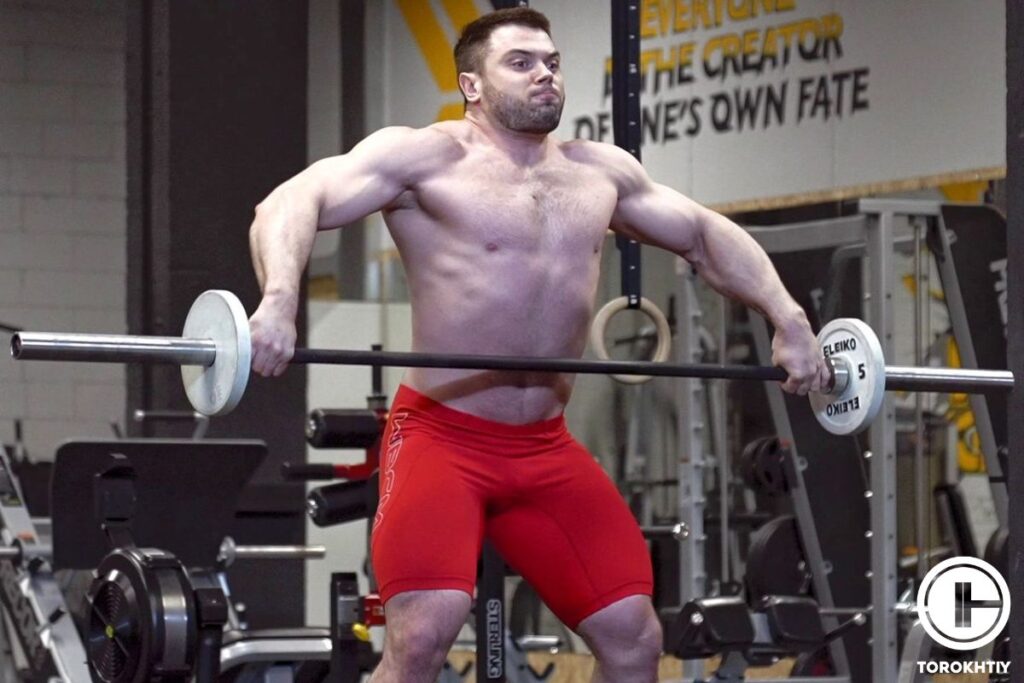
2. Exercise Selection
This is another great thing you can do to maximize calories burned lifting weights. You want to do workouts that have multiple muscle groups involved, because that will really skyrocket calorie burn. I like squats, deadlifts, and bench presses because those usually burn a lot more calories than isolation exercises that target smaller muscle groups.
If you really want to mix it up, do a combo of isolation and compound exercises so you can work all of your muscles. It’ll hurt, but it will definitely pay off when you notice how many calories you’ve burnt!
3. Training Volume
You probably already know this one but let me mention it anyway. The volume of your session (the number of sets, reps and exercises) will influence how many calories you’ll spend. This means that, if you do more sets and reps with shorter rest periods, you’ll burn more calories. If you decide to really put yourself through it and work like a maniac, kudos to you for being so brave, but you need to make sure you’re not overtraining.
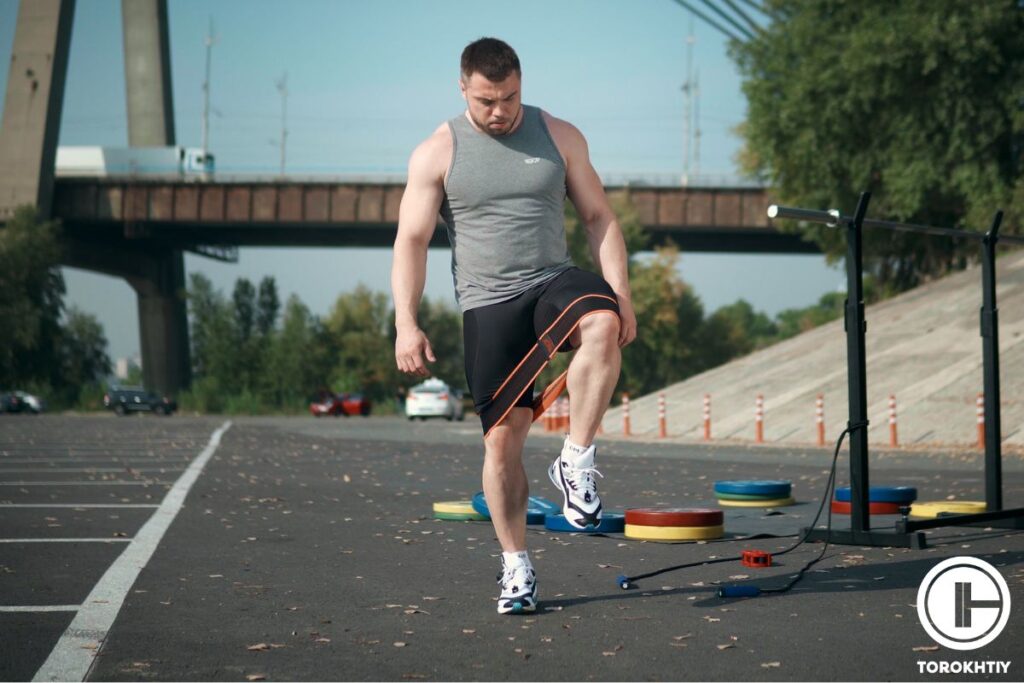
4. Rest Periods
First of all – you will most likely need to rest longer after heavier lifts because those need a lot of strength and also a lot of recovery.
But if you shorten rest periods and are not lifting super heavy weights, you’ll burn a lot of calories because shortening rest periods (which is called metabolic conditioning or circuit training) will increase the amount of oxygen your heart needs to keep working, and that will torch calories.
5. Body Composition
The amount of muscle mass you have affects your basal metabolic rate (BMR). This means that the more muscle you have, the more calories you burn because muscles are metabolically active tissue and need a lot more energy to be maintained compared to fat.
So, if you have a lot of muscle, you’ll burn a lot more calories resting compared to someone that has a lot of fat. But don’t be discouraged if you fall in the second group and have more fat than muscle; as you lift weights and work out in general, you’ll lose fat and increase the number of calories you burn. It’s a win-win!
6. Training Experience
If you’re a beginner, I can already see this is going to be motivating! For a beginner, weightlifting is a new type of workout that will require some getting used to and it will burn more calories because of that. If you’re a pro, though, you’ll need to do some advanced techniques or add more weights to keep your muscles challenged.
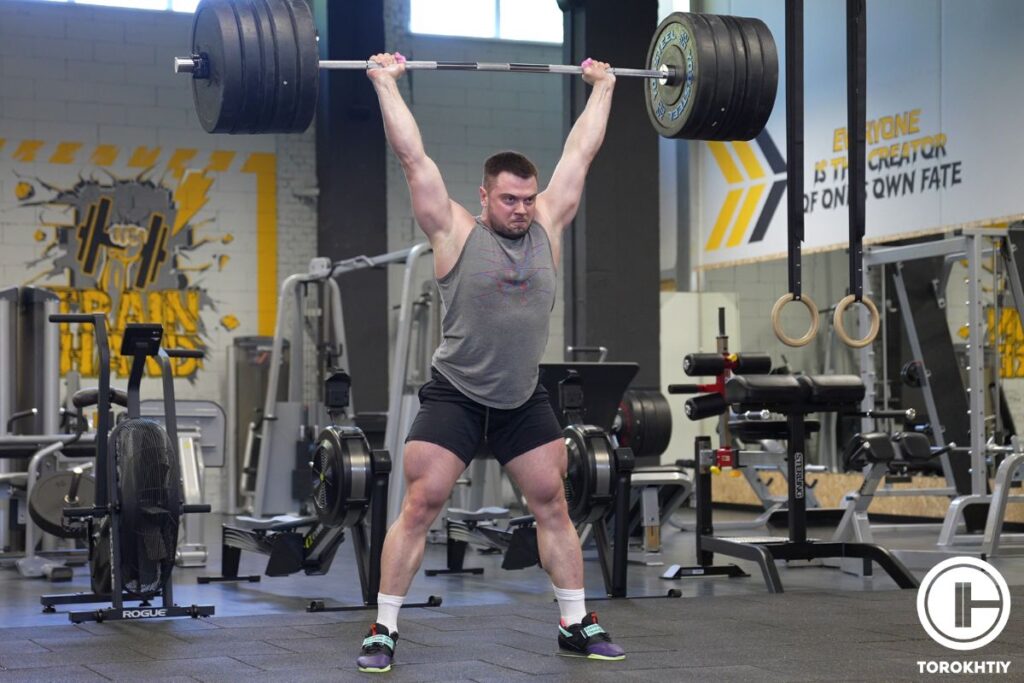
7. Body Weight and Size
It’s always really sad to me when I see someone with a higher body weight get discouraged from working out and they always lack motivation because they don’t think working out will help them that much. Well, I’ve got news for you! The higher your weight, the more effort your body needs to make to lift those weights, which means it will burn more calories.
How to Increase the Number of Calories Burned During Weightlifting?
I just love it when people want to take their workouts to the next level and burn even more calories, lift even more weights, and build muscle like a champ!

I think you’ll agree with me that weightlifting is a challenging workout. Have you ever seen anyone lifting weights and looking relaxed? If you have, then they weren’t doing it right and you tell them that the next time you see them!
Believe it or not, lifting can be even more challenging, and you can really push your limits with it. Of course, that will lead you to burning more calories. If that’s something that interests you, you’ll want to stick around for this section!
1. Compound Exercises
I’ve touched on this already, but if you want to make weightlifting even more challenging, you’ll want to include compound exercises into your routine. You can do squats, deadlifts, overhead presses, rows… basically, anything that’s going to really work multiple muscle groups at the same time.
2. High-Intensity Interval Training (HIIT)
I absolutely love this one and recommend it to everyone that wants to mix it up or focus on losing weight while also working on their muscles. You can do a weightlifting session and then afterwards, do some intense cardio! You can jump rope, do mountain climbers or burpees.
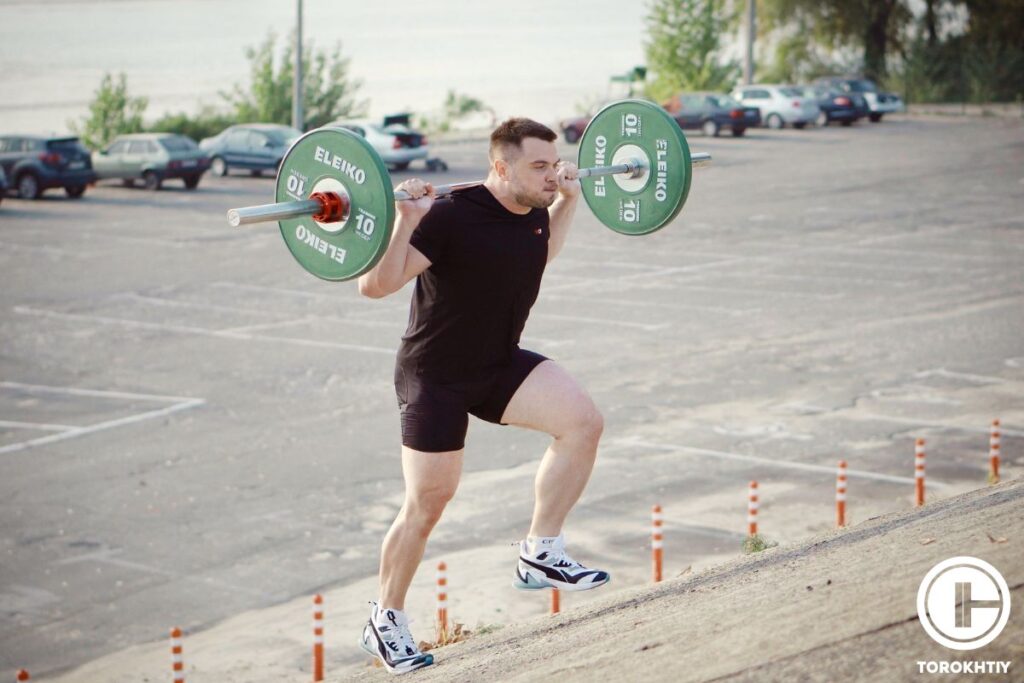
3. Supersets and Drop Sets
If you’ve never heard of these, that’s okay, but take a moment to learn what they are, because they’re very useful and will really increase the calorie burn. Supersets are two different exercises performed back-to-back, without making any rest in between them. I know, it sounds kind of hard, but you’ll get there with practice!
You can also do drop sets. For drop sets, you slowly reduce the weight as your muscles get more tired. This will allow you to do more reps and generally work out longer.
4. Incorporate Cardio
Combining cardio with weightlifting is like a supercharged workout because it challenges different energy systems. Do some running or jumping jacks, and then do a weightlifting session.
FAQ
Are There Any Benefits of Weightlifting for Women?
There absolutely are! All of the benefits I have included in this article refer to both men and women.
How Long Should I Lift Weights to Burn 1000 Calories?
I get it, you want the exact number, and I would love to give it to you, but there’s no definite answer here. It depends on the amount of weight you’re lifting, your expertise and metabolism. Generally, it would take a lot of time and effort, maybe even several hours of weightlifting, to burn 1000 calories. That’s why I always advise to include some cardio with weightlifting. It’ll burn calories and build muscle. What more can you ask for?
Conclusion
Now you know that weightlifting is a really effective workout that does so much more than just build muscle. Yes, it’s no match to running or cycling when it comes to burning calories, but it’s still a great help even in that regard. In addition to that, it also comes with a number of benefits for your overall health and fitness.
So, have you ever thought weightlifting can be so beneficial? What’s your experience with calories burned in weight lifting? What do you think, does weightlifting burn calories? Any tips you’d like to share with us to make weightlifting even more effective?
Leave a comment, leave your thoughts, leave your experiences and secret tips. I’d love to hear them!
Also read:
- Critical Weightlifting Mistakes
- Power Clean
- What Age Should You Start Lifting Weights
- Clean vs Power Clean
- What Is a Deload Week in Weightlifting
- Prilepin’s Chart Guide: Optimize Your Lifts
- Arm Exercises for Weightlifting: Are They Important?
- What Is A Deload Week In Weightlifting: The Science of Smart Recovery
- Does Weightlifting Make You Taller or Shorter
References:
- Exercise for weight loss: Calories burned in 1 hour // MayoClinic: https://www.mayoclinic.org/healthy-lifestyle/weight-loss/in-depth/exercise/art-20050999?pg=2
- Building better muscle // Health Harvard: https://www.health.harvard.edu/staying-healthy/building-better-muscle
- Prevention Osteoporosis // NHS: https://www.nhs.uk/conditions/osteoporosis/prevention/
- Strength training can burn fat too, myth-busting study finds // ScienceDaily: https://www.sciencedaily.com/releases/2021/09/210922121905.htm
Why Trust Us?
With over 20 years in Olympic weightlifting, strength training, nutrition coaching, and general fitness our team does its best to provide the audience with ultimate support and meet the needs and requirements of advanced athletes and professional lifters, as well as people who strive to open new opportunities and develop their physical capabilities with us.
By trusting the recommendations of our certified experts in coaching, nutrition, and sports training programming, as well as scientific consultants, and physiotherapists, we provide you with thorough, well-considered, and scientifically proven content. All the information given in the articles concerning workout programming, separate exercises, and athletic performance, in general, is based on verified data.
The product testing process is described in more detail here.
Author: Sergii Putsov
Head of Sport Science, PhD
Best Results: Snatch – 165 kg,
C&J – 200 kg
Sergii Putsov, Ph.D., is a former professional weightlifter and National team member, achieving multiple medals in the 94 kg weight category at national competitions. With a Master’s degree in “Olympic & Professional Sport Training” and a Sport Science Ph.D. from the International Olympic Academy, Greece, Sergii now leads as the Head of Sport Science. He specializes in designing training programs, writing insightful blog articles, providing live commentary at international weightlifting events, and conducting educational seminars worldwide alongside Olympic weightlifting expert Oleksiy Torokhtiy.
Reviewed by: Oleksiy Torokhtiy
Olympic Weightlifting Champion, PhD in Sport Science
Best Results: Snatch – 200 kg,
C&J – 240 kg
Oleksiy Torokhtiy is a professional athlete boasting 20 years of experience in Olympic weightlifting. With multiple European and World titles under his belt, he has showcased his prowess in two Olympic Games (Beijing 2008 and London 2012). Upon concluding his illustrious career, Oleksiy dedicated himself to coaching. By 2022, he had conducted over 200 weightlifting seminars worldwide. He is the visionary behind an international sportswear and accessories brand known for its motto, “Warm Body Cold Mind.” Additionally, he is an esteemed author and the creator of a series of training programs and eBooks.


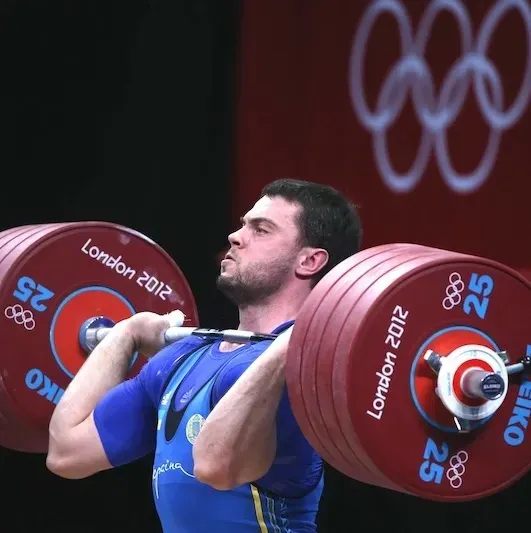


Still have questions after reading our article? Unlock your full potential by engaging with our experts and community! Don’t hesitate — leave a comment below and Sergii Putsov will provide a personalized answer and insights to help you reach your goals.